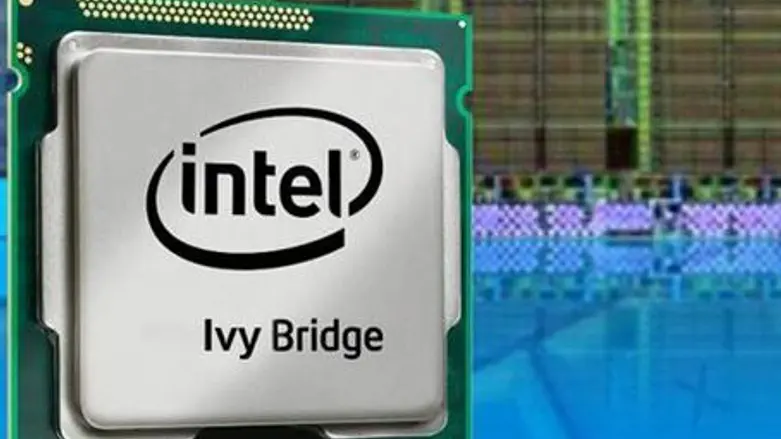
Israel’s Intel plant in Kiryat Gat is one of two factories in the world that will produce the revolutionary 3D “Ivy Bridge” processor, some 22 nanometers thick, Intel announced this week. The other location was not disclosed.
By comparison, a human hair is 60,000 nanometers thick. One nm is one billionth of a meter.
The chip-maker called the announcement of the new processor the "most important technology announcement of the year." “Ivy Bridge” was the processor’s secret code word until it was revealed by the company this week. It is based on Intel's Sandy Bridge processor.
Intel has spent $2.7 billion to upgrade its plant in Kiryat Gat, located between Be’er Sheva and metropolitan Tel Aviv. It is now capable of producing the new processor, which uses a complex silicon structure that allows more efficient use than regular transistors.
Intel CEO Paul Otellini said, "We will begin production of the 22-nanometer technology processor at the end of the year. This revolutionary technology will widen Intel's differentiation from its competitors in all segments of the computing world."
Traditional transistors are “flat” as they pass through a “switch gate” that opens or closes. Intel’s3D system provides more surface area that makes the silicon wafers more conductive while working with less power.
The bottom line is that the new processor stuffs twice as many transistors in the same space and can be used for mobile devices as well as desktop processors.